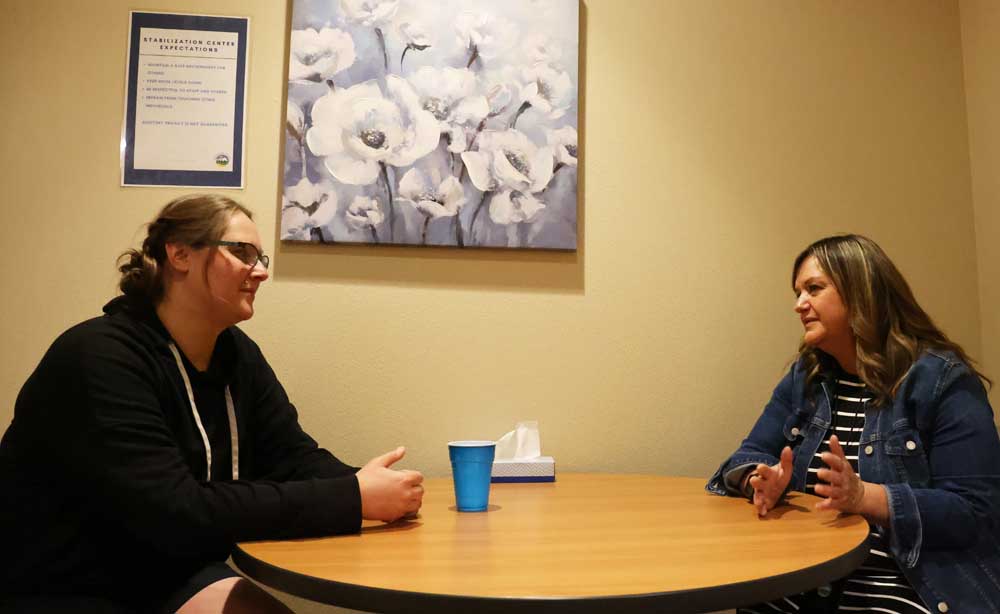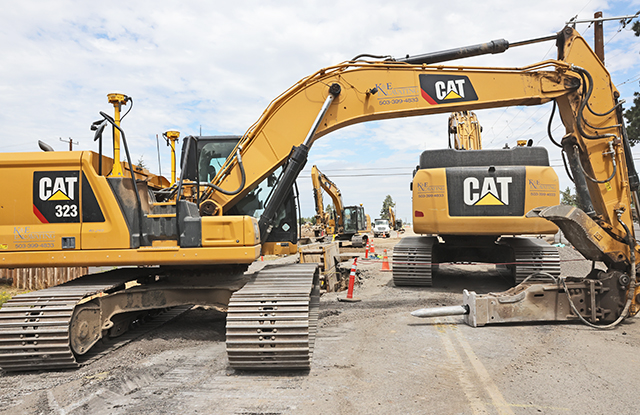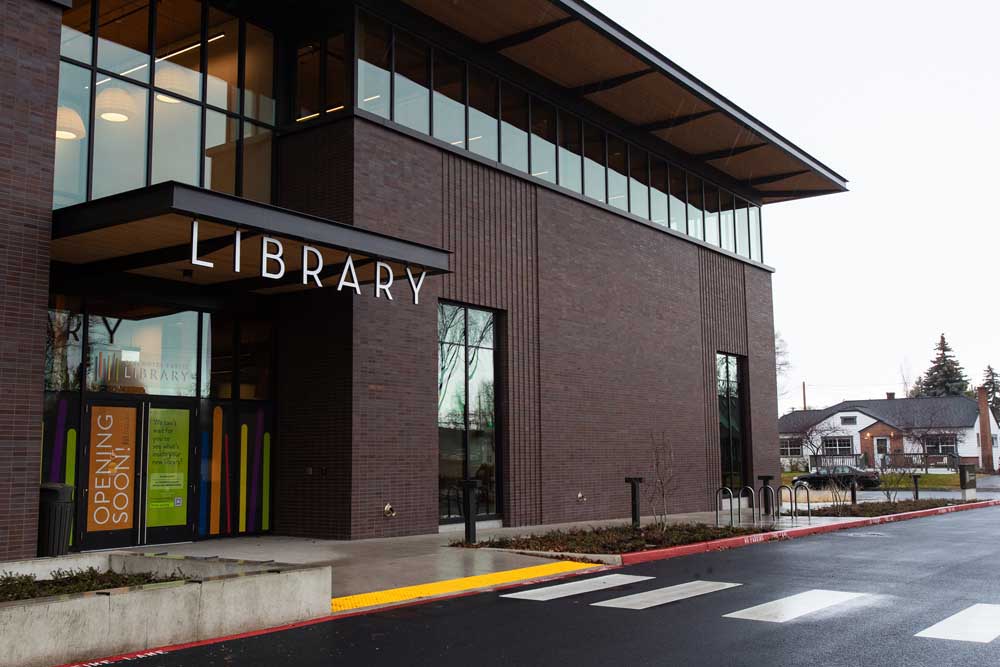Deschutes County Stabilization Center celebrates three years of helping local community
Published 5:50 am Friday, July 14, 2023

- Roberta Hilliard, peer support specialist, right, works with Michelle Stuart at the Deschutes County Stabilization Center in Bend. The stabilization center celebrated three years of 24/7, free crisis care his month. It's helped more than 10,000 mental health crises since it opened in 2020.
The Deschutes County Stabilization Center celebrated three years of 24/7, free crisis care this month.
It’s helped in more than 10,000 mental health crises since it opened in 2020, and it intends to help even more.
Trending
Disabled Army veteran Christine Gittins is one of those 10,000.
One day in 2021, she hadn’t slept for 72 hours. Her flashbacks from her time as a U.S. Army military police officer in Mogadishu were all-consuming.
The only place she felt comfortable turning to for help was the stabilization center on Jamison Street.
When she arrived, Gittins spoke to a counselor. Then she slept for 13 hours.
“It’s a place to go to have somebody professional listen to you, let you process what you’re going through, and then at the end I feel better and I’m not committed to an institution like a hospital or a psych ward,” she said.
Ninety-seven people said they would have ended their life if the center didn’t exist, according to data from Deschutes County. Around 30% of people who visited the center were diverted there from emergency departments. The center has logged 165 cases involving veterans like Gittins, a 53-year-old disabled combat veteran and retired police officer living in Redmond.
Trending
Gittins has persistent post-traumatic stress disorder and sexual trauma as a result of serving a tour in Somalia in the ‘90s and being sexually assaulted while in the military.
All of these things contribute to her propensity for experiencing mental health crises.
Gittins visited the center before and after those sleepless days, because for her, as a woman and as a veteran with serious trauma, the center was a safe, judgment free-zone.
For many veterans, it can be a scary thing to trust those who offer mental health care.
“It’s really important for veterans to know this is a unique crisis center,” Gittins said.
Ahead of its time
Deschutes County’s stabilization center is being used as a model for similar ones across the state and country, according to Holly Harris, the former manager of the center and the current director of behavioral health for the county.
The center was one of the first of its kind, she said.
“I think it was a smart decision to be first but a scary one,” she said.
Planning for the center first began in 2015, which led to Harris traveling around the country to find similar places and figure out what works and what doesn’t.
As a result, the center had a soft opening in June of 2020 and officially opened in July of that year.
Over the years, the center struggled to obtain sustainable funding. Right now, it’s primarily grant-funded, but it also receives contributions from the Deschutes County Sheriff’s Office and the city of Bend, Harris said.
“The mission of the work has driven this project forward,” she said.
But with funding that’s year-to-year, Harris said it can be difficult to look too far in the future.
An alternative solution
When people arrive at the stabilization center, employees address the crisis people are experiencing, but also seek to address any related ongoing issues, said Adam Goggins, the crisis program manager for the center.
Being in crisis means a person’s stressors have exceeded their ability to cope with them, he said.
“We’re not necessarily experts in everything that walks through the door,” Goggins said. “But we are experts in crisis.”
They have case managers and peer support specialists on staff not only respond to the crisis but address the root of it.
For many, including law
enforcement officers, the stabilization center is an alternative place to take people instead of hospital emergency departments or a psych institution.
A big hole existed in Deschutes County before the stabilization center was around, Bend Police spokesperson Sheila Miller said.
The majority of visitors to the center, 60%, come from Bend, and almost 20% of all visitors are dropped off by law enforcement officers.
“I think officers sometimes feel like they’re helping somebody in crisis instead of making it worse or walking away feeling like they haven’t helped,” Miller said.
She estimates Bend Police drop off someone at the stabilization at least once a day.
If you or someone you know are experiencing a mental health crisis, help is available.
Deschutes County Stabilization Center
Open 24/7 at 63311 NE Jamison Street in Bend.
Twenty-four hour crisis line: 541-322-7500 ext. 9
988 Suicide and Crisis Lifeline
Dial or text 988. For Veterans, dial 988 and then press 1.
Alcohol and drug helpline: 800-923-4357
Military helpline: 888-457-4838
Racial equity support: 503-575-3764
Senior loneliness line: 503-200-1633
Youth line: 877-968-8491








